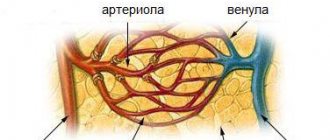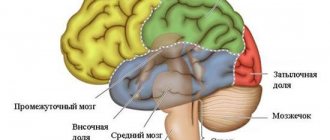“I can’t concentrate on anything” is a fairly common complaint among patients suffering from psychological disorders. Often patients do not understand that neuroses, worries and fears can negatively affect such cognitive processes as memory, attention and thinking. In most cases, as a rule, people ignore this problem, not taking into account the fact that the lack of treatment for mental disorders can lead to more serious problems.
What is absent-mindedness and inattention?
Absent-mindedness and inattention are the inability to concentrate on any object or action. These character traits cause a lot of problems for absent-minded and forgetful people who have them. They themselves suffer because they forget about important promises and meetings, and their loved ones and friends suffer. It happens that for this reason they are even fired from their jobs.
These people try to concentrate, promise themselves to be attentive, but nothing works out for them. They make a list of things that they take with them on a trip, write down the things they need to do, but as a result they forget where they put the notebook with notes...
And then they begin to think: maybe this is not a character trait, but a psychological deviation? Or maybe one of the symptoms of some disease? Perhaps the situation can be corrected by taking medications, vitamins or adjusting your diet?
However, forgetfulness, absent-mindedness and inattention are so common that even the term “attention deficit disorder” has appeared. To some extent, all people are forgetful, because, probably, each of us at least once in our lives had to forget something purchased and paid for in a store. A left-on iron or a forgotten and burnt kettle or pan are generally classic examples of absent-mindedness.
Overwork
Chronic lack of sleep or heavy physical and mental stress for a long time often lead to weakening of attention. Surely you yourself have noticed: if you sit down for lessons with a fresh mind, there are much fewer blots and errors in problems, and in a state of fatigue and drowsiness it is sometimes difficult to understand the terms of the task.
How to fight:
- Sleep at least 7-8 hours a night, even on the busiest school days. Make restful, healthy sleep your habit: follow your daily routine, go to bed and get up at approximately the same time; If you don’t get enough sleep at night, find an opportunity to sleep for 1-2 hours during the day.
- Spend time outdoors regularly. Thanks to walks and sports in the fresh air, brain cells receive more oxygen, resulting in increased activity and performance, improved memory and attention.
- Take breaks from studying. To avoid overwork during classes, use the 45x15 technique described in Jana Frank's book “The Muse and the Beast.” After 45 minutes of studying, switch for 15 minutes to some other activity not related to concentration: household chores, talking on the phone, exercise. Repeat the 45×15 cycle several times until the tasks planned for today are completely completed. Rest and switching help to re-focus on mental activity.
Psychologists identify three types of inattention
"Fluttering" attention
This is a weak concentration of attention, which is characterized by slight involuntary switching. Such inattention is typical, for example, of preschoolers. It occurs when tired, after a sleepless night, during a headache or during monotonous monotonous work. A type of such absent-mindedness is road hypnosis, when a person falls into a state of half-asleep that occurs during a long trip on a calm road.
"Professor's" absent-mindedness
With the second type of inattention, there is a high concentration of attention with difficulty switching, which is characteristic, for example, of scientists focused on their thoughts - the so-called “professorial” absent-mindedness. Many great people were absent-minded because they were focused on their creativity.
For example, N. Zhukovsky, who is called the father of Russian aviation, once received guests in his own living room. A few hours later he got up, put on his hat and began to say goodbye, apologizing that he had stayed too long visiting and it was time to go home.
And the English mathematician and physicist Isaac Newton once decided to boil an egg and put a watch in the water instead. There were also such oddities: the astronomer Galileo did not recognize his wife in his marital bed, because he forgot that he was married. And the historian Mommsen, looking for his glasses, thanked the girl who gave them to him and asked her name. “Anna, your daughter, dad,” the girl answered.
The same type of inattention is found in people who are haunted by obsessive thoughts, or in people who are too absorbed in the implementation of an overvalued idea - a fixed idea.
Poor concentration
And the third type of inattention is a weak concentration of attention with even weaker switchability. It is typical for people who have reduced strength and mobility of nervous processes. Usually in this case they talk about senile absent-mindedness. In healthy people, these processes decrease when overworked.
It is curious that psychologists, studying absent-mindedness and forgetfulness, observed a group of people during an experiment and noticed that in men these properties “exacerbated” in the period from 8 to 10 o’clock in the morning, and in women from 10 to 12 o’clock. And regardless of gender, the peak of errors was observed from 4 to 6 pm and from 8 to 10 pm.
Reluctance to act
The degree of absent-mindedness and forgetfulness is greatly influenced by the level of motivation. If we subconsciously don’t want to go somewhere or do something, the brain helps us get rid of an unpleasant task and, as it were, “crosses out” information about it from memory. If you often forget about meetings, agreements, promises, writing down homework or deadlines for completing an essay, perhaps the problem is not absent-mindedness per se, but a lack of desire.
How to fight:
- Review your affairs and tasks in terms of priorities. Make a list of tasks and situations in which you are especially likely to be absent-minded, and answer the question why it is so difficult for you to maintain attention on these tasks, how much you need to do this and why. It is possible that based on the results of the analysis, the list will be reduced by several points, but you will stop forgetting about the remaining points.
- Reframe your plans so that you want to carry them out. It is easiest to achieve those goals that promise us reward, moral or material. The more specific the goal, the more clearly you can imagine the positive effect of it. Formulate your tasks in such a way that you want to achieve results. For example, instead of the goal “I want to learn a foreign language,” set the goal “Learn to communicate in a foreign language with peers on the Internet,” and it will become easier to focus on it.
- Make sure your goal is realistic and achievable. If our brain believes that achieving a goal is impossible, it stops allocating energy to achieving it and concentrating on it. As a result, we either constantly forget about the goal or cannot concentrate on performing the necessary actions. If the goal is too big, break it down into intermediate steps and move step by step. For example, your goal is to pass the Unified State Exam with 90+ points. Write down all the topics that you need to master for this, study them sequentially, test yourself at each stage and only then move on.
Causes of absent-mindedness
To get rid of absent-mindedness, you need to know its causes. The main thing is that this is not an innate character trait, but an acquired one.
There is an opinion that absent-mindedness can occur:
- on a subconscious level - with reluctance to do what you need to focus on;
- for overwork , headache, fatigue, etc.;
- while performing automatic actions in a familiar environment when attention is suddenly distracted by external or internal factors. For example, a woman is peeling potatoes when her friend calls her and tells her an exciting story. It would not be surprising if, having listened, she automatically throws the potatoes into the trash can and the peelings into the pan. Or another story: the cashier working at the cash register is mentally worried about the upcoming divorce. Naturally, errors in her work are inevitable;
- when trying to do several things at once . People say about an absent-minded person that he counts crows. That is, his attention is diverted from his main occupation by extraneous matters;
- with organic brain lesions ;
- for certain mental illnesses (depression, anxiety disorders).
Survey
Identification of attention disorders is carried out during the diagnosis of mental pathologies and neurological diseases, as well as as part of a medical and psychological examination when applying for certain types of work. The examination is carried out by psychiatrists, clinical psychologists, and psychotherapists. The results make it possible to diagnose absent-mindedness and determine what causes forgetfulness. The main research methods are:
- Conversation. Signs of absent-mindedness are detected during the initial interview of the patient: he has difficulty maintaining the topic of conversation, asks again, and is often distracted by a problem that worries him (physical pain, a traumatic event, neurotic experiences). In severe cases, obtaining the necessary clinical information during the interview is possible only with the organizing help of a doctor, that is, with special holding of the patient’s attention with a loud voice, strict intonation, and frequent calling by name.
- Observation. The behavior of patients is characterized by reduced purposefulness. They are often distracted for no reason by external secondary signals - footsteps outside the door, noise outside the window, other people talking. They may spend a long time looking for glasses in their bag and forget to take the medical documents the doctor needs. If they come to an appointment without a relative, they wander around looking for the right office.
- Tests for attention. Quantitative assessment of attention activity is carried out using special pathopsychological tests. Common techniques: finding numbers using Schulte tables, proofreading, forward/backward counting. Based on the results, the pace of sensorimotor reactions, switchability of mental processes, fluctuations in performance, and fatigue are determined. Absent-mindedness is evidenced by a decrease in concentration and stability of attentional functions.
We invite you to familiarize yourself with the Change in the wording of the reason for dismissal by the court
To determine the cause of the state of absent-mindedness in patients with symptoms of neurotic or other mental disorders, a comprehensive study of the cognitive sphere, emotional and personal characteristics is carried out. If the patient's complaints indicate the presence of an endocrine or neurological disease, he is referred for consultation to the appropriate specialists.
How to easily get rid of absent-mindedness
Absent-mindedness is not such a harmless character trait, so psychologists study its causes. After all, the inattention of people who service, for example, dangerous equipment can cause a catastrophe or man-made accident.
Absent-mindedness is treated or corrected depending on the cause of its occurrence. For depression or anxiety, the psychotherapist selects antidepressants. If it is caused by overwork, then rest, a change of environment, etc. will solve the problem.
5 steps
If absent-mindedness becomes chronic and firmly established in our lives, we can analyze our lifestyle and take the following steps:
- Determine priorities and concentrate your attention on completing one task or only one object. Most people do not know how to do two or three things well at the same time. For example, a group of participants in a psychological experiment were asked to observe athletes at a volleyball match and count the number of balls thrown into the basket by team members wearing blue T-shirts. During the match, a man dressed in a gorilla suit walked across the field, but no one noticed him, since everyone was busy watching the players and counting the goals scored. After watching the game again, the experiment participants were very surprised that they had not noticed such an obvious fact;
- While working remove all objects that distract attention and create chaos. Extra items on the desktop - books, magazines that are not relevant to the task, photographs that lead to thoughts of relaxation; for those who have problems concentrating, it is better to put them away;
- Use visual cues . Of course, you can keep a diary where you can write down upcoming tasks. Additionally, you can use some item that will remind you of an important matter in the morning. For example, in the evening, put a regular sheet of paper or a book on the floor in the middle of the room. One look at them in the morning and we will remember that we need to make an urgent call. This method is reminiscent of grandma’s “memory knot.” Our grandmothers tied such knots on handkerchiefs so as not to forget to do something important;
- Pause to collect your thoughts and fix your attention on the current moment. For example, when leaving the apartment, we should not think about whether we are on time for the bus, but focus on thoughts about its safety: check electrical appliances, gas, water, etc.;
- Solve all problems as they arise, without delaying until later. A pile of unfinished tasks also leads to chaos in thoughts and absent-mindedness.
Types of memory disorders
Memory diseases occur from a blow to the head, old age, stroke and alcohol. Amnesia can be fleeting and smoothly flowing. A person may forget his name, but remember his professional skills. Only parts of the events that take place can disappear from memory, or your whole life, along with your biography and surname, can disappear.
Such cases are told in movies. Too frequent memory loss in able-bodied, healthy men suggests that special drugs have been developed to eliminate memory. A person who does not remember himself can become an obedient doll in the unkind hands of others.
Dangerous! Do not accept food from strangers on trains. Don't drink with strangers in restaurants. Clonidine and other drugs can be quietly added to food and drink, causing persistent and complete amnesia.
Korsakov's syndrome
Disorientation in time, the inability to remember present events with a complete memory of the past, is called Korsakoff's syndrome. Patients begin to believe in fictitious events that they themselves invented, and concentration is impaired.
Forgetfulness and absent-mindedness - causes, symptoms, what to do?
Forgetfulness can occur in many people due to poor lifestyle choices. Many experts say that if people sleep less than 6 hours a day, they may experience memory loss.
The main reasons for forgetfulness in people
- Frequent stress. During stress, the brain is quite overloaded, and our nervous system loses minerals and vitamins too quickly.
- The body lacks fluid. In this case, brain function will deteriorate significantly, so sometimes it is better to drink a glass of clean water along with a cup of coffee or tea.
- Frequent dieting to lose weight can cause forgetfulness. People who are on diets sharply and quickly reduce the amount of carbohydrates and fats in the body, therefore, the brain will be in a state of shock.
- Smoking and alcohol provoke the development of forgetfulness. They can cause vascular spasms, poison the brain, reduce the speed of perception, and slow down the thinking process.
- Other causes of forgetfulness: chronic fatigue syndrome, chronic intoxication, tumors, traumatic brain injuries, cerebral atherosclerosis, inflammation and infections.
Option with onions and eggs
There are other recipes for fried umbrellas. For example, with onions and eggs. To prepare you will need the following:
- fresh medium-sized mushrooms - 5 pcs.;
- 1 medium sized onion;
- eggs - 3 pcs.;
- sour cream - 3 tbsp. l.;
- greens to taste;
- frying oil;
- salt and spices to taste.
Preparation:
- Fry the chopped umbrellas and onions until lightly browned.
- Pour a mixture of eggs, sour cream, salt and spices on top.
- Cover the pan with a lid and let sit until the eggs are ready.
If desired, the recipe for fried umbrellas with onions and eggs can be supplemented with cheese. To do this, grate it on a coarse grater and sprinkle on top a few minutes before it is ready.
If desired, the recipe for fried umbrellas with onions and eggs can be supplemented with cheese. To do this, grate it on a coarse grater and sprinkle on top a few minutes before it is ready.
Classification
Absent-mindedness is a condition characterized by inattention and forgetfulness that constantly accompany a person.
Psychologists note the presence of three types of inattention.
- Fluttering attention. Characterized by insufficient concentration of attention and easy switching from one task to another. This type of inattention often occurs in preschool children. It can also occur with severe fatigue, as a result of insomnia, monotonous work or severe headache.
- Professorial absent-mindedness. There is a serious concentration on one specific matter. Such concentration is found in professors or scientists who are fixated on their thoughts. We should not forget that many great personalities were absent-minded, as they were focused on their discovery or creativity. It also occurs in individuals who are absorbed beyond the idea, fixated on a fixed idea.
- Weak concentration. An even greater weakening of switchability is characteristic. Occurs in people with reduced activity of nervous processes. Senile absent-mindedness often occurs.
Considers such types of absent-mindedness as well.
- Insufficient concentration. Characterized by a decrease in the ability to remember what is heard or seen. Occurs in people who react acutely to various conditions. For example, it is a consequence of lack of sleep, severe anxiety, fatigue.
- Rigidity. Lethargy, slowness, which is characterized by difficulty switching from topic to topic. Occurs in patients with epileptic syndrome, hebephrenia, and hypomania.
- Unstable attention of spasmodic nature. There is constant jumping from topic to topic, which leads to absent-mindedness and forgetfulness. Occurs in children with attention deficit disorder.
Causes and characteristics of disorders at different ages
Such problems can manifest themselves in the form of loss of short-term memory. They can significantly change the quality of life. There are many reasons for this, among which the leading place is given to:
Taking medications. There are medications that lead to deterioration of memory and attention.
- Excessive consumption of alcoholic beverages and drugs. These bad habits have a negative impact on the brain, worsening the speed of processes.
- Insufficient sleep, which leads to chronic fatigue, which creates obstacles to normal information processing.
- Frequent stressful situations that reduce attention span. With nervous overstrain, a person seems to become fixated on experiences, as a result of which the ability to memorize suffers.
- Poor nutrition. In order for the brain to function normally, it is necessary to consume fats and proteins, and the consumption of foods rich in B vitamins plays a special role.
- Head injuries can lead to memory loss, not only long-term but also short-term. There are cases that over time the memory returns.
- A stroke often leads to memory loss. Usually people who have had a stroke remember pictures from childhood, but they forget what they had for lunch.
Disorders in young people
There are cases where absent-mindedness manifests itself in people aged 18-30 years. They often forget what day of the week it is, where they put the keys to the apartment. This forgetfulness is mainly caused by reasons such as leading an unhealthy lifestyle. Often, after a stormy evening, young people do not remember what happened yesterday.
Particular aspects of brain disorder that lead to forgetfulness occur due to all kinds of gadgets. Multitasking is essential for brain health, and electronics do it. If attention is not switched to different types of activities, short-term memory is impaired.
Often, inattention occurs due to the bad habit of keeping phones nearby while sleeping. They emit harmful electromagnetic fields that destroy various brain functions. People experience a psychological disorder that leads to emotional imbalance; they become more distracted and forgetful.
Also, a sharp deterioration in memory occurs during dehydration of the body, with low blood sugar. As a rule, when the causes of the problem are eliminated, brain function is restored.
Important! If young people have difficulty remembering, then it makes sense to reconsider their lifestyle; perhaps this is due to lack of sleep, physical inactivity, and bad habits.
Disorders in the elderly
Older people often complain of forgetting. It often happens that they forgot the way home, what movie they watched the day before, why they entered the room, what familiar objects are called. Usually these problems are associated with senile dementia. However, they are not always a sign of incurable diseases. Typically, older people need more time to memorize and recall information.
This phenomenon is not a problem that arises as a result of inevitable aging, since the brain has a unique ability to produce young cells at any age. If this ability is not used, then the brain cells atrophy. The following reasons influence memory deterioration in older people:
deterioration of the area of the brain that is responsible for the memory process;
- a decrease in the amount of synthesized hormones that protect cells and stimulate the formation of new neuronal connections;
- Due to many diseases, there is a decrease in blood circulation, which negatively affects mental activity.
Important! In old age, it is necessary to promptly distinguish forgetfulness characteristic of age from the onset of the development of serious diseases.
How to distinguish normal memory impairment in older people from the development of diseases?
Often, older people and their environment have a question about how to distinguish normal changes in cognitive function of the brain from the onset of serious diseases. The main difference is that at the onset of the disease, periodic failures have an impact on a person’s daily life. Persistent deterioration of the speech apparatus of memory is called senile dementia. A person practically loses the ability to abstraction and logic.
If forgetfulness and absent-mindedness do not interfere with leading a normal lifestyle and engaging in usual activities, then these are not terrible age-related changes. Incipient dementia is characterized by difficulty completing ordinary tasks, such as washing dishes. Also, a signal to suspect a disease is loss of orientation in a familiar environment, a change in behavior, and distortion of spoken words.
If such symptoms appear, it is necessary to consult with a neurologist as soon as possible; after certain diagnostic measures, he will recommend treatment that will eliminate the existing problems.
Effect of anesthesia
Everyone knows the negative impact of anesthesia on the functioning of the brain; memory often suffers from this, the ability to learn decreases, and absent-minded attention is observed. Usually this problem goes away over time, but there are cases when spontaneous recovery from the effects of anesthesia does not occur.
If after 3 months there is no improvement, then you need to contact a neurologist, who, after finding out the cause, will prescribe adequate therapy. Most often, he recommends taking nootropics, neuroprotectors, antioxidants, and non-steroidal drugs that have an anti-inflammatory effect. Also, to speed up the recovery of memory, it is recommended to solve crosswords, charades, and read more literature. If you do not consult a doctor in a timely manner, you can only worsen the situation and the therapy will not bring the expected result.
Possible reasons
Let's look at what factors can cause a person to become absent-minded:
- the presence of monotonous, monotonous work;
- severe fatigue;
- prolonged headaches;
- the result of simultaneous execution of several tasks;
- the presence of mental illnesses, such as schizophrenia;
- anxiety disorder, depression;
- organic brain damage;
- consequences of insomnia, chronic lack of sleep;
- the result of mental or physical fatigue;
- changes with age - in people over 70 years of age, the ability to concentrate their attention significantly decreases, which leads to absent-mindedness;
- the presence of extreme anxiety can also lead to inattention;
- the presence of pathology in the body, namely: atherosclerosis, hypertension, osteochondrosis, hydrocephalus, vascular dementia, epilepsy, Alzheimer's disease, vegetative-vascular dystonia, iron deficiency anemia;
- a sudden distraction while performing an automatic action can also lead to absent-mindedness. For example, in a situation when a woman is peeling potatoes, she is distracted by a phone call, and she automatically throws the peeled tuber into the trash can and the skin into the pan.
Symptoms
Imaginary and genuine absent-mindedness have completely different symptoms, since in the first case this, in itself, is not a sign of a disease, but in the second it can indicate the development of a serious pathological process.
Thus, absent-mindedness can be characterized by the following clinical signs:
- headaches, dizziness;
- deterioration of memory and cognitive abilities;
- deterioration in performance, loss of professional skills;
- irritability, sudden mood swings;
- traits may appear in a person’s behavior that were not previously characteristic of him;
- blood pressure surges;
- sleep cycle disturbance – drowsiness during the day, inability to sleep at night;
- feeling tired even after a long rest;
- decreased activity, including sexual activity;
- inability to concentrate on small details;
- a person may begin to lose personal belongings and forget to perform usual operations.
In children, absent-mindedness can manifest itself as follows:
- the child refuses to perform those operations that require increased attention and perseverance;
- school failure;
- slowness;
- can switch to another task without completing the previous one;
- sudden mood swings - activity and a cheerful mood can be replaced by attacks of hysteria for no apparent reason;
- hyperexcitability;
- bad memory.
It should also be understood that the presence of such signs in a child does not always indicate the presence of any disturbances in the functioning of the body; it is quite possible that these are simply features of psychological development. However, consultation with a doctor is required.
Diagnostics
If absent-mindedness is present, the following studies may be prescribed:
- Initially, the patient is recommended to undergo an examination by a neurologist, during which the doctor assesses the state of functioning of fine motor skills and excludes the presence or absence of neurological symptoms;
- conducting a neuropsychological test to assess the level of intellectual abilities, attention and performance;
- genetic analysis;
- blood biochemistry to determine the level of glucose, magnesium, iron, lead;
- ultrasound examination of cerebral vessels using Dopplerography;
- Magnetic resonance imaging;
- electroencephalography with EP.
How to fry a mushroom umbrella
According to experts, fried umbrellas taste very much like chicken meat. The main thing is to cook them correctly. The cooking process itself consists of the following steps:
- The caps are separated from the legs. They are not suitable for frying as they become tough and fibrous. Once dried and ground to a powder, they can be used to flavor broths.
- The surface of the caps is cleaned of scales and washed under running water.
- After drying, cut into 3-4 parts and roll in a mixture of flour and salt.
- Fry in butter or vegetable oil.
According to experts, fried umbrellas taste very much like chicken meat. The main thing is to cook them correctly. The cooking process itself consists of the following steps:
- Having previously cleared the “husk” and washed in running water, the mushrooms are cut into layers or triangles. Throw into a heated frying pan, greased with oil.
- Chop the onion into half rings or strips and add to the mushrooms when all the liquid from the mushrooms has evaporated.
- Fry until golden brown. If desired, you can add carrots or sour cream, which will make the mushrooms even more delicate in taste.
Interesting fact: Umbrellas are very interesting mushrooms. They may look a little like fish, or they may look like pork or chicken. The whole secret lies in the oil in which you fry the mushroom. If you use vegetable oil, then you will get the taste of fish; with butter you can create tender chicken, and with lard you can create a pork chop.
Treatment
An absent-minded person may not need drug therapy. Sometimes following certain recommendations is enough to improve the process of concentration. However, for certain conditions, medications may also be prescribed, including:
- Piracetam - to improve brain activity;
- Glycine - has a beneficial effect on the nervous system and increases performance;
- Biotredin - improves cognitive functions, improves memory, increases alertness;
- Phenibut - affects the improvement of blood circulation in the brain, thereby increasing the quality of mental activity and memory.
Physiotherapy procedures can also be used, namely:
A selection of books to combat absent-mindedness
To learn more techniques and techniques that will help you deal with constant absent-mindedness and begin to live a more mindful and mindful life, you can read several books related to this problem.
The best works devoted to the fight against absent-mindedness include the following works:
- "Focus. On Attention, Distraction, and Success in Life by Daniel Goleman. Combining cutting-edge research with practical recommendations, the author delves into the science of attention in all its varieties, exploring the long-overdue discussion of this little-seen and underappreciated intellectual asset. In an age of uncontrollable distraction, Goleman convincingly explains that now, more than ever, we must learn to focus our attention in order to survive in the modern world.
- “Don't distract me! How to Stay Focused No Matter What? - Edward Hallowell. Through vivid case histories of patients (both adults and children), the author explores the different forms that ADHD takes, from hyperactivity to absent-mindedness. It dispels common myths, offers helpful coping tools, and gives a full account of all treatment options, as well as tips for working with a diagnosed child, partner, or family member. But most importantly, Edward focuses on the positive things that can come with this “clutter,” including high energy, intuitiveness, creativity, and enthusiasm.
Adviсe
I bring to your attention recommendations on how to deal with absent-mindedness.
- Take short breaks and respites in your work to realize what has been done and understand what still needs to be done. Before starting a new task, be sure to think through its implementation and make a mental plan.
- Try to concentrate on your business. Often, forgetfulness is a consequence of lack of concentration. For example, when, while performing one task, all thoughts are filled with something else.
- Try not to put things off until later, even if they seem insignificant and take a little time. Thus, you delay their implementation, which only increases absent-mindedness.
- You can use visual reminders. Choose a few items that will remind you of specific things to do. Keep them handy so that they are always visible and remind you of what needs to be done.
- Use conscious associations. You can come up with a relationship between a task and a situation, an important task and a subject. Once you find yourself in a hidden place, you will be able to immediately remember what you planned.
- Try to get rid of all kinds of junk. This applies to the desktop, both at work and at home, because often it is chaos that leads to absent-mindedness. It is worth taking care of organizing your desktop on your computer.
- Determine your priorities, concentrate on one object or completing one task. You need to understand that almost no one manages to do two or more things at the same time.
- Solve problems as they arise, do not invent difficulties for yourself before they happen.
Now you know for what reasons adults may experience inattention and absent-mindedness. It is important to understand that pathology may occur in certain situations. Therefore, if you have other suspicious symptoms, then it is better not to delay, promptly seek help from a specialist, undergo diagnostics, and if any ailment is detected, begin appropriate treatment.
Things to remember:
- We become distracted, forgetful and inattentive for various reasons. By correctly identifying the cause, you can quickly and effectively regain your concentration.
- The main causes of inattention: overwork, reluctance to complete planned tasks, failure of the “autopilot”, an excessive number of tasks and lack of attention.
- Avoid overwork: get enough sleep, walk in the fresh air, take breaks while studying. Use the 45x15 system: 45 minutes of activity - 15 minutes of any other activity.
- Understand your motivation: prioritize, re-evaluate your goals and bring them into line with your desires, formulate tasks in such a way that they sound more attractive. This will help get rid of constant forgetfulness.
- Try not to rely on “autopilot” in everyday affairs, train mindfulness, notice the details of the world around you, change the algorithms of routine actions.
- Minimize the number of tasks, complete them sequentially one after another, try to do small things at once so that they do not accumulate. If there are still a lot of tasks left, use different methods of effective planning - make lists, visualize tasks.
- Work on your concentration with special exercises.
Source: media.foxford.ru
Umbrella mushroom description
Edible umbrella mushrooms live up to their name. In the process of growth, forest gifts open their caps, previously adjacent to the legs, like an umbrella. However, many mushroom pickers do not know the special signs that confirm the edibility of the mushroom and distinguish it from its toadstool counterparts and undeservedly bypass the delicious mushrooms.
- Edible umbrellas have a pleasant smell where the cap is broken, reminiscent of a nut. The cut location does not change color upon contact with air.
- The stem of the non-poisonous mushroom has a three-layer ring framing it in the form of a skirt. Such an accessory can be easily moved up and down, whereas in inedible representatives it is firmly attached or completely absent.
- An important criterion by which you can immediately recognize a good umbrella mushroom is size. Edible specimens when opened reach 30 cm in height with a cap diameter of 40 cm, while identical in appearance toadstools have legs no more than 13 cm high and caps no wider than 14 cm in diameter.
- As they grow, the caps of umbrella mushrooms become covered with scales, which are often concentrated at the edges. The top of the cap is darker in color and smoother.
- The most common types of umbrella mushrooms are: white, variegated and blushing.
The umbrella mushroom belongs to the genus Macrolepiota, the Champignon family. It got its name because of its external resemblance to an open umbrella: a large dome-shaped hat on a high and thin stem. Many species are safe and can be eaten, although the plant has several poisonous counterparts that are extremely dangerous to human health.
After heavy rains, umbrellas can grow to very large sizes. The cap of such a mushroom reaches a diameter of 35 to 45 cm, and the height of the stem grows to 30-40 cm.
On average, the mushroom has a stalk length of about 8-10 cm and a cap diameter of 10-15 cm. The surface of the cap is dry and finely scaly; at the edges the skin may crack and hang down in the form of a fringe. The pulp and juice are light in color with a pleasant mushroom smell and delicate taste. The leg at the base is thickened, it has a characteristic movable membranous ring.











